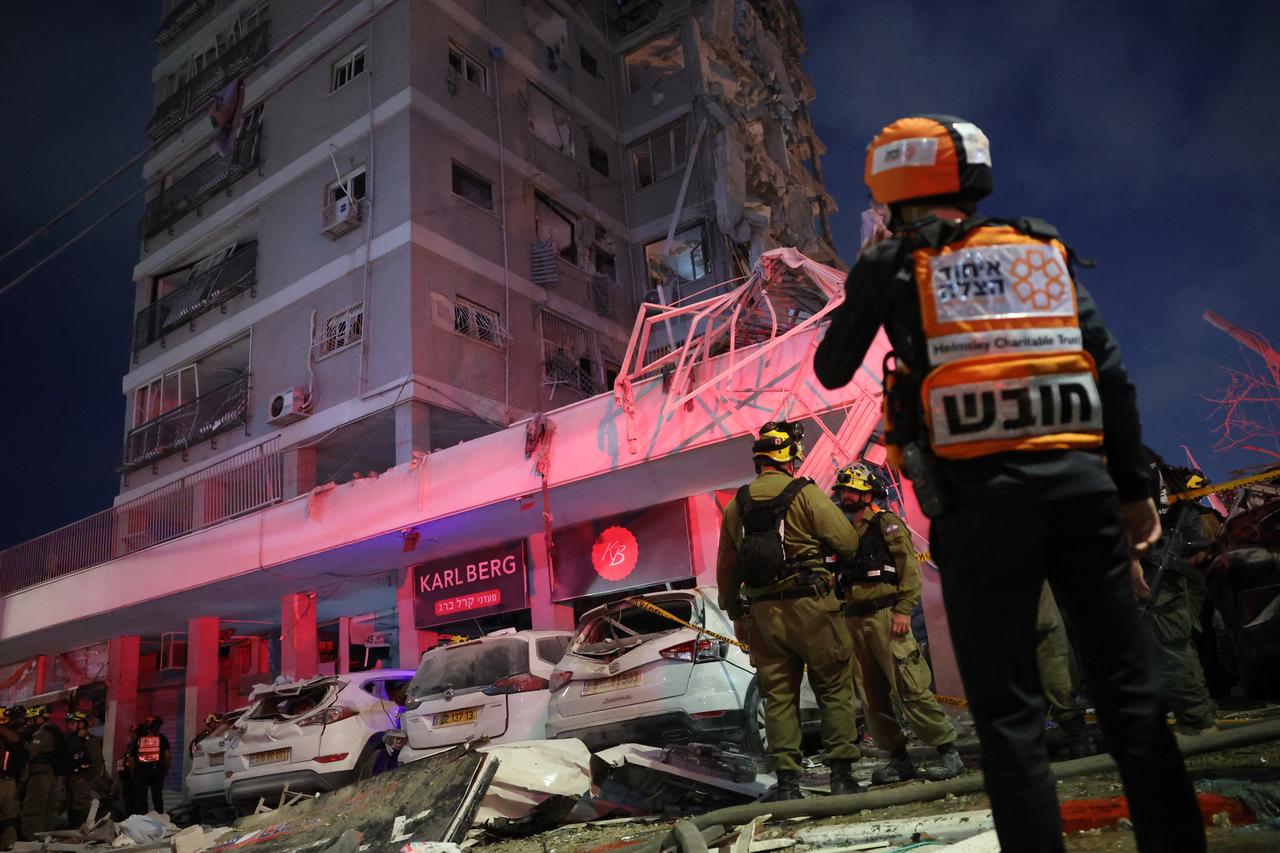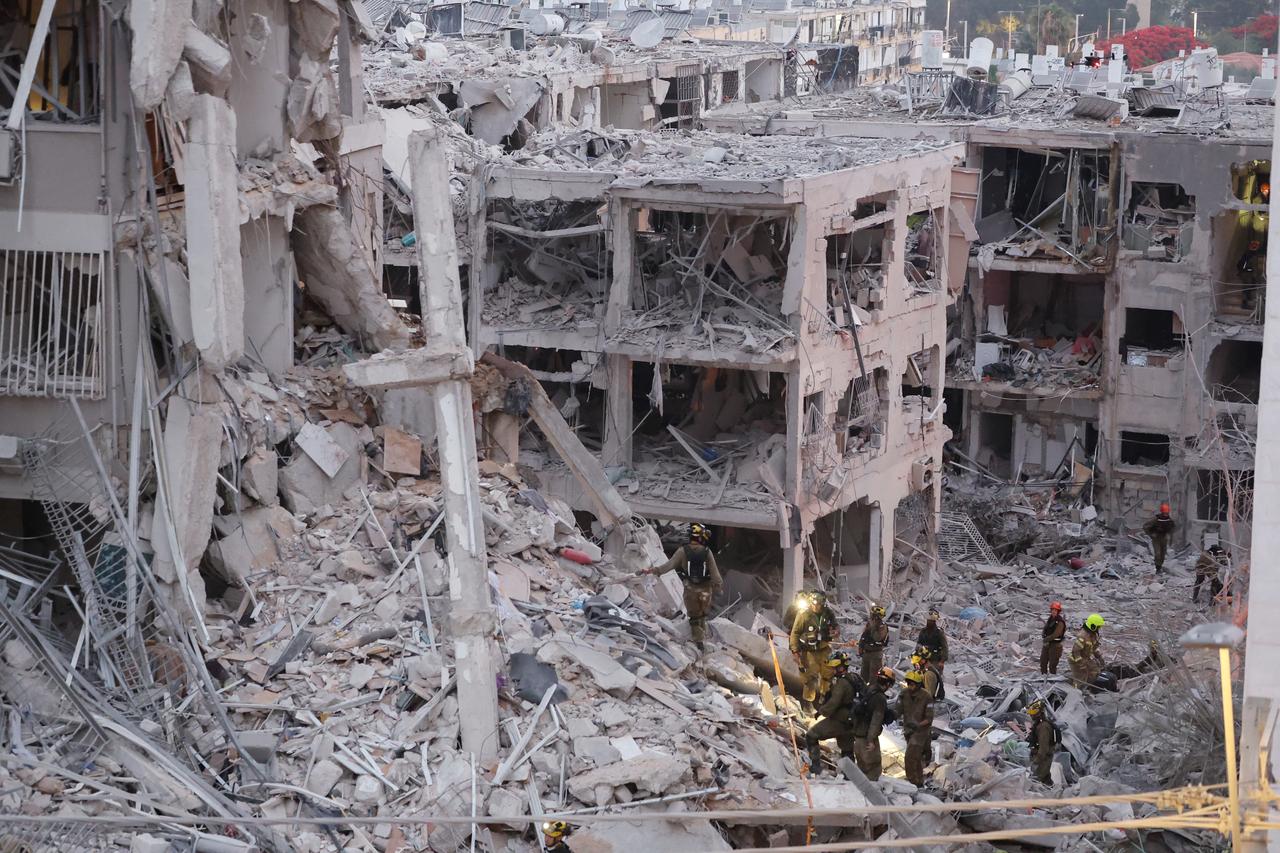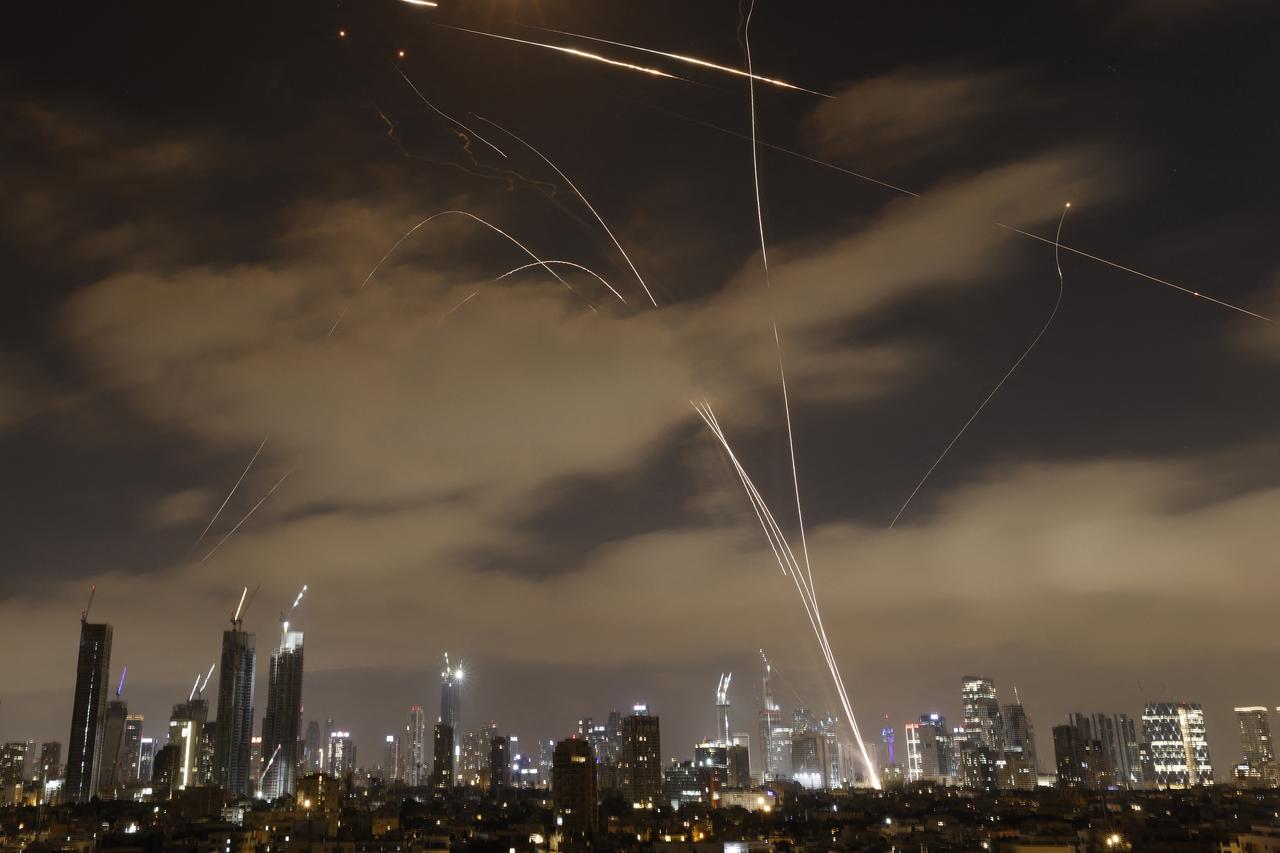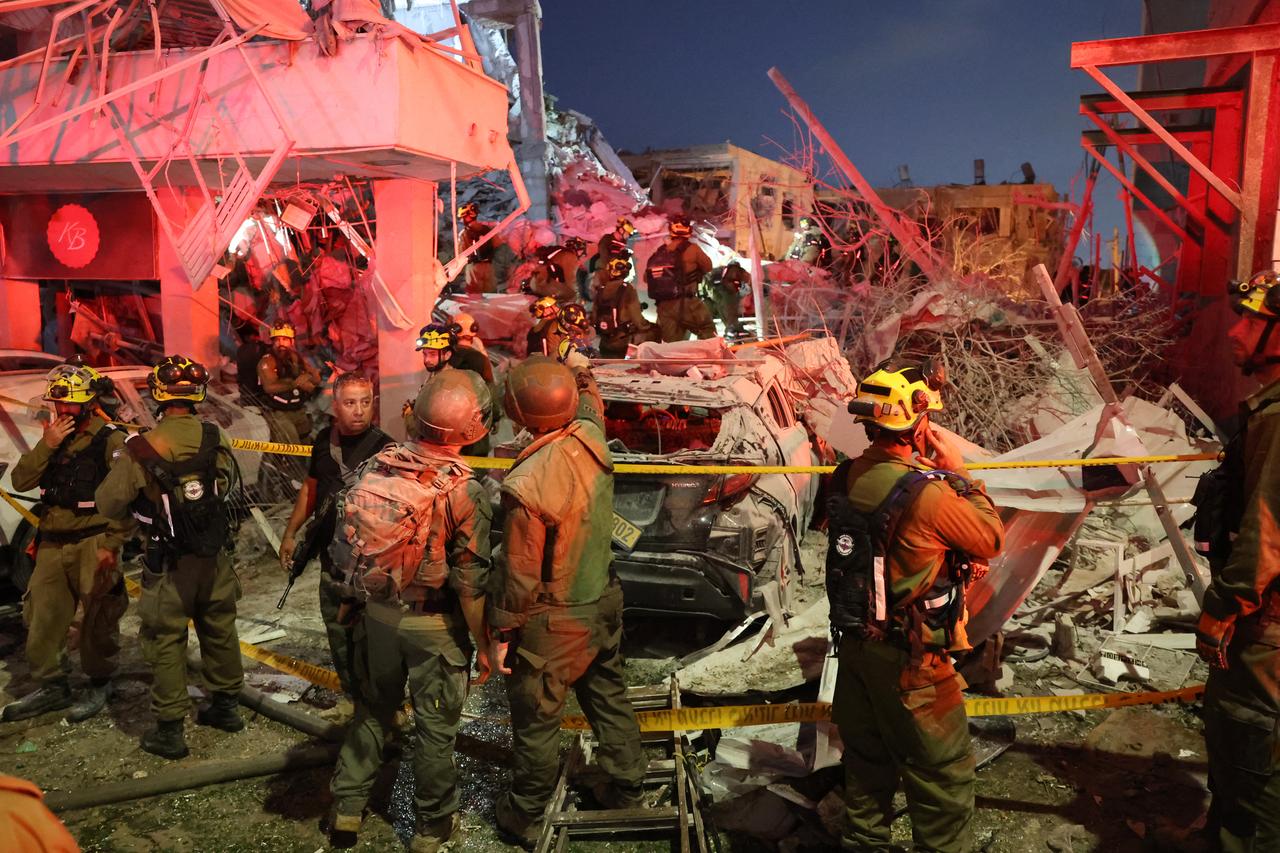
At least 10 people were killed and 250 others wounded in Iranian missile strikes across central and northern Israel overnight Saturday, Israeli media reported Sunday, as the longtime adversaries engaged in their most intense direct confrontation in decades.
The casualties occurred in multiple locations, with Israeli Channel 12 reporting that six people died in Bat Yam and Rehovot, south of Tel Aviv, while 18 others remain missing under rubble.
The strikes damaged 61 buildings in Bat Yam alone, with six rendered uninhabitable, according to the city's mayor.

The escalation marks the third consecutive day of tit-for-tat attacks between Israel and Iran, despite international calls for restraint. Air raid sirens and explosions echoed through Jerusalem and Tel Aviv early Sunday as millions of Israelis sought shelter, the Israeli military said.
Israel's emergency services reported that children were among the eight people initially confirmed dead in the overnight strikes, with approximately 200 wounded. In Bat Yam, first responders wearing helmets and headlamps searched through building debris at dawn, recovering the bodies of two elderly women, a girl and a 10-year-old boy.
In the Western Galilee region of northern Israel, rescuers said a late Saturday strike destroyed a three-story building, killing three women. Another woman in her 20s died when an Iranian missile hit a home in the Haifa region, leaving about a dozen people wounded.

The Iranian strikes came in response to Israeli operations that began Friday, targeting what Israel described as Iran's nuclear and military infrastructure. Israeli forces struck Iran's defense ministry headquarters and what they called "nuclear weapons project" sites early Sunday, including facilities belonging to the Organization of Defensive Innovation and Research.
Israel's military said it had struck Iran's defense ministry headquarters, "nuclear weapons project" infrastructure sites, and other targets, including fuel tankers, just before 2:40 a.m. Sunday. The targeted sites "advanced Iran's efforts to obtain a nuclear weapon," Israeli officials said.
Iranian news agency Tasnim reported that an Israeli strike had targeted the defense ministry headquarters in Tehran and damaged one of its buildings. Israel also struck two fuel depots in Tehran, according to the Iranian oil ministry, with an AFP journalist witnessing a depot at Shahran on fire.

The conflict has disrupted diplomatic efforts, with Iran canceling scheduled nuclear talks with the United States. Iranian officials said through mediator Oman that the country "could not negotiate while under fire from Israel."
Iranian Foreign Minister Abbas Araghchi said the Israeli attacks undermined negotiations and were pushing the region into a "dangerous cycle of violence." Iran's U.N. ambassador reported 78 people were killed and 320 wounded in Friday's first wave of Israeli strikes.
Israeli Prime Minister Benjamin Netanyahu has vowed to hit "every target of the regime," while Iranian President Masoud Pezeshkian warned further strikes would draw "a more severe and powerful response."
President Recep Tayyip Erdogan warned against a "devastating war" with regional consequences in a call with Saudi Crown Prince Mohammed bin Salman.
U.K. Prime Minister Keir Starmer said Britain was deploying fighter jets and other "assets" to the Middle East "for contingency support" while urging de-escalation.
President Donald Trump said he and Russian President Vladimir Putin had agreed in a Saturday phone call that the conflict between Iran and Israel "should end."